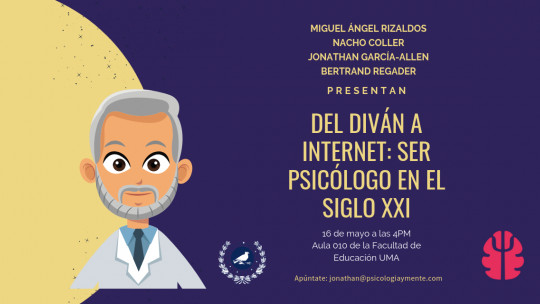
The birth of the Internet has meant a revolution in the way we live in our society, to the point of being a practically essential instrument for a wide variety of tasks or even simply in our social life.
There is no doubt that we are dealing with an element with great power, but the truth is that its use is not without risks and it is possible to find both positive and negative aspects. What are the main advantages and disadvantages of the Internet? Let’s see it…
Internet and networks
The uses of the Internet today are multiple, from searching for information to contact between people, through leisure, research or teaching.
Coming from the English term for interconnected networks (“Interconnected Networks”), this instrument emerged in the late sixties in the United States with the purpose that different universities and the Department of Defense could share information. As time went by, this invention spread to the rest of the globe and little by little it incorporated functionalities as computing and computer programming advanced, until it became what it is today.
But like any technological innovation or as happens with any instrument, Its creation entails both opportunities and risks depending on the use you decide to give it. In this sense we can determine the existence of both advantages and disadvantages, some of which we highlight below.
Main advantages of the Internet
The Internet is an instrument whose creation has allowed a large number of innovations and changes in the way we relate to each other and the world and even seems to have affected our way of perceiving things.
Its creation, expansion and popularity is due to the fact that using it gives us a series of advantages that make our lives easier. Among its many advantages we can find the following elements.
1. Access to information
One of the great advantages of the presence of the Internet in our lives is that thanks to it we can access a large amount of information from a very wide number of sources in a simple and practically immediate way.
2. Communication
Another of the main and best-known advantages of the Internet is that it allows us to come into contact with people from all over the world regardless of the distance they are, as long as they have access to the network.
This makes it easier for people who live in very remote places or who must go to live or work abroad to maintain fairly frequent contact with their loved ones.
3. Breaks barriers and facilitates the approach of postures
The existence of the network of networks is an opportunity to learn and be able to observe different ways and perspectives of understanding, thinking and living life with respect to practically any possible topic.
In this sense also allows us to make our cultural barriers more flexible and learn to accept different visions beyond one’s own or those of people with a context similar to one’s own. In other words, it allows us to bring positions closer
4. Reduce the need for presence
The existence of the Internet has meant that it is no longer necessary to carry out procedures in person that previously would have involved a large investment of time and the need to travel and stay in that place. This allows us optimize our time and take advantage of it to do other things.
Thus, for example, it is no longer always necessary to meet to discuss a matter, wait in long lines to reserve tickets, make a request or file a complaint or claim.
In fact, it also allows working from home or the existence of distance academic training with some comfort.
5. Freedom of expression
Although depending on the country and the policies that exist in this regard, there will be more or less difficulties, the Internet is often a space in which very different people are able to show and express their position regarding a specific topic, at a practically anonymous level if you know how. We can see an example of this in cases of countries that live under dictatorships and totalitarian political regimes.
6. Allows collaboration between people
The Internet not only allows access to information or communication, but also offers a framework in which different people can collaborate to achieve a given goal.
For example, at the study level it allows group work in which all those involved instantly follow the status of the project.
It also applies at work level, so that it can be used to jointly build some type of action or intervention. It also allows, for example, the creation and financing of projects for which there are no resources, such as crowdfunding.
7. Increase options and avenues for learning
Beyond the mere search for information, networks have also allowed the generation of new ways or alternative methods for learning.
For example, watching a YouTube tutorial or some type of more visual example of a task to be performed can make it easier to learn something that can be complicated through reading or a purely verbal explanation. This element is especially important in the case of people with special educational needs.
8. Makes management and organization easier
The presence of the Internet and networks has, partly as a collateral effect of all the previous elements, better management and organization of our time and activities. Planning, searching for information, and carrying out procedures and procedures are accelerated.
9. Increase divided attention
The Internet and information and communication technologies have an effect even at a functional level. It has been seen that people who could be considered digital natives have a greater capacity for divided attention that is, to pay attention to various types of stimulation at the same time.
Disadvantages and risks of its use
As we have seen, there are many advantages and opportunities that the Internet offers us. However, this does not mean that this instrument does not have a dark side: there are great risks and disadvantages in using it.
1. Cybercrime and fraudulent uses
One of the disadvantages of the Internet can be found in the fact that although it offers many opportunities to make our lives easier, it also allows other people to try to take advantage of this instrument in order to obtain benefit or gratification at the expense of others through this means.
Some examples of this can be found in cases of cyberbullying, threats, humiliation, identity theft, phishing, scams, theft of information and bank accounts or even grooming or attempts to approach minors for sexual purposes through deception.
2. Information oversaturation
We have said previously that one of the great advantages of the Internet is that it allows access to a large amount of information.
However, this aspect has a negative reading, which in turn becomes a disadvantage of the Internet: there is an enormous amount of information that we can use, with sources that may be erroneous and even offer contradictory data among themselves.
In this way, finding truly reliable information on the networks is a challenge and implies the need to train in the search for truly valid and reliable information.
Likewise, this large amount of information can overwhelm us, not knowing what to turn to or what to do with it.
3. Threat to privacy
The Internet allows us to connect with each other and share a large amount of thoughts, data, photos and information with others. But although at first this may seem desirable, it also It can be a window to external eyes for the violation of our privacy.
Without going any further, our data is trafficked among a large number of companies that use it, among other purposes, to offer us their products in the most attractive way possible or to know our position regarding certain aspects. Even at the work level, many companies look for information on networks (including social networks) about candidates for their jobs.
And this without taking into account that interested and unknown third parties can know much more about us than we would allow in real life.
4. Contact at a distance, cold and impersonal
If as an advantage we mentioned that the Internet facilitates communication between people, the truth is that on the other hand this contact is usually much colder and more distant than that which would take place face to face. It favors a much more superficial contact with others something that can later make it difficult to develop social skills in the real world.
5. It can serve as an avoidance method
A possible disadvantage of using the Internet is the fact that it allows us to carry out activities or contact with others immediately and from the supposed safety of our homes.
This comfort can make people with some type of difficulty or problem, such as a social phobia, do not have to expose yourself directly to a feared situation something that if maintained over time maintains the problem by becoming an avoidance mechanism, something that makes it difficult to overcome your fears.
6. Contact 24/7
Another disadvantage is that the Internet is available on more and more devices (computers, mobile phones, televisions… even watches and refrigerators) that we use constantly in our daily lives. Although it is not impossible, most of us are constantly connected to the network.
This means, especially in the case of social networks, that we can be complained about or contacted at any time and place, 24 hours a day and seven days a week. In other words, unless specifically sought, there are very few opportunities to be “offline.”
7. Decreases tolerance to frustration
Just as we have mentioned before that the Internet facilitates the creation of understandings between different perspectives and can increase the ability to attend to several stimuli at the same time or carry out more operations at the same time, it must also be noted that the immediacy that the Internet has It makes us accustomed to having everything here and now.
This implies that we are not accustomed to waiting, something that means that, for example, in the case of digital natives there is a tendency to have a reduced capacity for tolerance of frustration and delay of gratification compared to previous generations.
8. Depends on network status
In addition to the previous ones, one more disadvantage can be found in the fact that its use It depends largely on the status of the network, the connection, the speed of uploading or downloading data or even the presence of electricity.
Any failure in any of these elements can make comfortable and efficient use difficult or even impossible.
9. Addictive potential
An increasingly frequent problem of the period in which we find ourselves is the increasing prevalence of dependency or addiction to new technologies, mostly based on the use of the Internet. In this sense, a pathological need can be created to use networks (especially social networks) to check if something has happened, if they have spoken to us or if we have found some way to entertain ourselves, and if we cannot access them, It can cause anxiety and withdrawal symptoms.
It is not that the Internet or its use is harmful or causes addiction in itself, but rather that the way we use it can encourage the generation of a dependency on the network.
10. Reduce physical activity
Finally, another element to highlight is that the predominance of the Internet in all areas of life and the fact that its use usually requires a rather sedentary posture This means that the level of physical activity we perform has greatly decreased, something that can have numerous implications for both physical and mental health.








